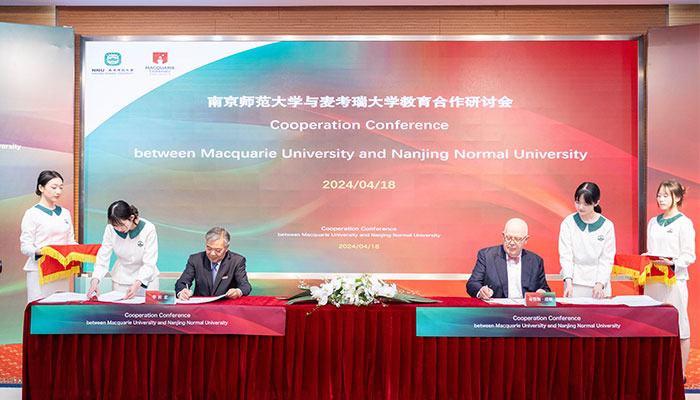However, a new study by Macquarie University challenges that notion, arguing it may also lead to laziness and lessen innovation among employees.
The study, “Inspirational leadership, positive mood, and team innovation: A moderated mediation investigation into the pivotal role of professional salience”,was written by Professor Rebecca Mitchell from Macquarie University’s Faculty of Business and Economics, and Associate Professor Brendan Boyle from the University of Newcastle’s Department of Management.
The report’s authors said recent arguments that inspirational leadership styles may foster innovation in multidisciplinary teams was not always the case, and there was often inconsistency among leaders in their ability to drive innovation.
Mood and Innovation
“By increasing positive team mood, inspirational leaders can potentially bring about more flexible thinking and enhance innovation but can also increase reliance on less effortful information processing, undermining innovative potential,” said Professor Mitchell.
The report said generating innovative outcomes was widely recognised as a key skill for successful team leaders, with research suggesting that teams without clear leaders have a reduced capacity to innovate.
“However, while inspirational leadership styles have long been argued to enhance innovation, recent reviews indicate significant variability in their effect,” said Professor Mitchell.
The report said those with inspirational leadership styles had been found to increase task performance in teams and influence team innovation by building heightened positive mood, and this was reflected in increased enthusiasm, energy, determination and attentiveness.
“We contend that positive mood is a particularly important factor in understanding the influence of inspirational leadership because it also has the capacity to increase or decrease multidisciplinary team innovation.
“As positive mood signals a non-challenging decision context, it may increase innovation through more flexible thinking and greater attendance to external environmental factors; however, it may also lead to less effortful information processing, potentially undermining innovation,” said ProfessorMitchell.
Detrimental Effects on Performance
“Positive mood leads to more confidence and optimism regarding tasks and, in turn, to less effortful information processing,” said Professor Mitchell.
The report found there was substantial evidence that positive mood may:
- Have a negative effect on the execution of memory tasks
- Impair key aspects of an employee’s contribution
- Diminish the capacity to plan and to engage in complex tasks that require deductive reasoning and analytical thinking
- Accentuate a person’s tendency to conform and use the responses of other members as guides, regardless of their relevance
These behaviours may increase the speed of decision-making, but also reduce the cognitive load required to solve problems.
“We suggest that this decreases the likelihood that members will raise dissenting information or share unique knowledge and increases the likelihood of premature consensus, which suggests that positive mood may be negatively related to idea generation – a critical component of innovation,” concluded Professor Mitchell.
The indiscriminating acceptance of ideas and reduction in internal error monitoring may increase the risk that members will uncritically provide practical assistance and resources to support the implementation of any suggested idea with little regard for its quality, rather than undertaking the rigorous analysis to determine the most appropriate ideas for implementation, the report said.



